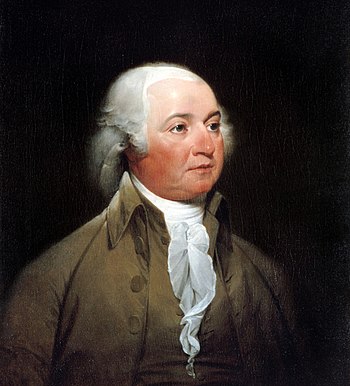
October 11, 2012 at 3:19pm
“…I am curious as to why people view him (President Obama) as antithetical and hostile to the values and principles held by those who follow the example and the life of Christ. I would appreciate it if you could detail it a little more for me.” ~ Jerry Murtagh
There are several specific policy positions covered in the rest of the commentary above, and they all raise terrific points that those who speak as Christians and conservatives often don’t explain clearly. My initial intention here is to first present an overview of Biblical principles of governance, and how those principles play out in the modern Republic we are blessed to call home. From that platform I will go further into the details of specific policies and why Christian Conservatives in particular might find President Obama, and in all honesty most modern liberalism, hostile to their faith.
Before I go into detail, I would like to clarify my own place in the world. I would say that I am not an expert on politics, but I am in fact a scholar of politics in general and specifically American politics. There was a time when I would have claimed I am not a Bible scholar, but these days that would be a lie. I will instead say that I am a Bible scholar just beginning the in depth study of God’s word that I imagine will last the rest of my life. The thoughts here are not a claim to speak for all those who call themselves Christians or Conservatives. We are all unique individuals perfectly capable of speaking for ourselves. They are instead an offering of the insights and conclusions I have reached from the last several years of studying policies, people, and the Bible. So, for those out there reading this, take these words for what they are worth on that basis, and form your own opinions. I pray this series of responses will at least inform, perhaps inspire, and maybe even heal some of the divisions that too often spring up in the arena of politics and faith.
 The Bible does not speak much on specific types of government, but it does lay out a simple and solid explanation of the purpose of any government. It is most succinctly put in 1 Peter 2:13-17 and Romans 13. These verses tell Christians that God puts all earthly authority in place, and they specify that the purpose for that authority is to commend those who do good and punish those who do evil. Based on this understanding of Godly authority, Christians follow the laws of man, as long as those laws do not violate the laws of God. Even then, they submit to the authority of government and accept the consequences of breaking the laws of man. This understanding of the role of government is essential to the foundational concepts of our Republic.
The Bible does not speak much on specific types of government, but it does lay out a simple and solid explanation of the purpose of any government. It is most succinctly put in 1 Peter 2:13-17 and Romans 13. These verses tell Christians that God puts all earthly authority in place, and they specify that the purpose for that authority is to commend those who do good and punish those who do evil. Based on this understanding of Godly authority, Christians follow the laws of man, as long as those laws do not violate the laws of God. Even then, they submit to the authority of government and accept the consequences of breaking the laws of man. This understanding of the role of government is essential to the foundational concepts of our Republic.
John Adams once said, “Our Constitution was made only for a moral and religious people, it is wholly inadequate to the governance of any other.” This is often the only part of this quote that people see, but here it might be wise to look at the full context of that quote:
“While our country remains untainted with the principles and manners which are now producing desolation in so many parts of the world; while she continues sincere, and incapable of insidious and impious policy, we shall have the strongest reason to rejoice in the local destination assigned us by Providence. But should the people of America once become capable of that deep simulation towards one another, and towards foreign nations, which assumes the language of justice and moderation while it is practising iniquity and extravagance, and displays in the most captivating manner the charming pictures of candor, frankness, and sincerity, while it is rioting in rapine and insolence, this country will be the most miserable habitation in the world; because we have no government armed with power capable of contending with human passions unbridled by morality and religion. Avarice, ambition, revenge, or gallantry, would break the strongest cords of our Constitution as a whale goes through a net. Our Constitution was made only for a moral and religious people. It is wholly inadequate to the government of any other.”
This makes clear the next concept of governance stated in these verses regarding submitting to authority. Romans explains that the obligation to obey authority comes not only from fear of punishment, but also from conscience, or knowing it is God’s will for us to abide under His authority. In 1 Peter just after explaining the purpose of government, it explains that it is God’s will for Christians to do good to silence the talk of the ignorant. In terms of American government, what it means is that we are a self-governing people, but in order to remain a self-governing people, we must take responsibility for governing our behavior by conscience.

Another interesting note on Adams commentary is that he does not just refer to a moral people or a religious people, but to both. It is important for us to understand this distinction. In these days of moral relativity we see the result of lacking a religious foundation. Morality is required in order for government to be small and abide by the limits placed upon it by the Constitution. Religion is required to provide a common set of morals to the people of a society. Without the common values present in religion, it becomes impossible to govern 300 million people under our system of governance because there is no common conscience, no common sense of right and wrong, nothing to which the citizens are accountable besides the law.
Our nation is unique in the history of mankind, and poses a unique challenge to Christians. It is based on a system where the character of our government will reflect the character of our people. We have both the freedom and the duty to cast informed votes to assure that our government continues to praise good and punish evil. The ultimate sovereign authority of governance is vested not in a king, or even in the government itself, but in each individual citizen of this nation. We are called to govern ourselves, even as we are commanded by God to submit to the authority of those we elect to serve as the administrators of our nation. This has created a great deal of struggle in the minds of many Christians over the years as we are bombarded with charming declarations of frank candor about the fact that the First Amendment guarantees that Congress cannot establish a national religion, about the issue of free will, and many other things commanded by our faith. For myself, this struggle ceased when I began to understand the logic of God.
To summarize the basic points of the foundational worldview of Christian Conservatives: Authority is granted by God. In America, that authority is granted to the people and lent to their representatives in government. The purpose of that authority is to praise those who do good and punish those who do evil. As such, every legitimate use of government force will be ultimately for one of those two purposes, from foreign policy to law to domestic policy. Because the ultimate authority in this nation has been granted to the people, it is our duty to assure that the government performs only those functions that serve the purpose of praising good or punishing evil. All other functions should remain the responsibility of the people.
I am aware that the response to this might very well be that it is not fair for Christians to impose their ideas of evil on those who do not believe in God. That making legislation based on Biblical principles is establishing religion and violates the First Amendment. For many years those arguments have been made, and Christians have been silenced by them, but those arguments are flawed for a Christian who truly believes what their Bible tells them. I will get into that argument in the next segment.
